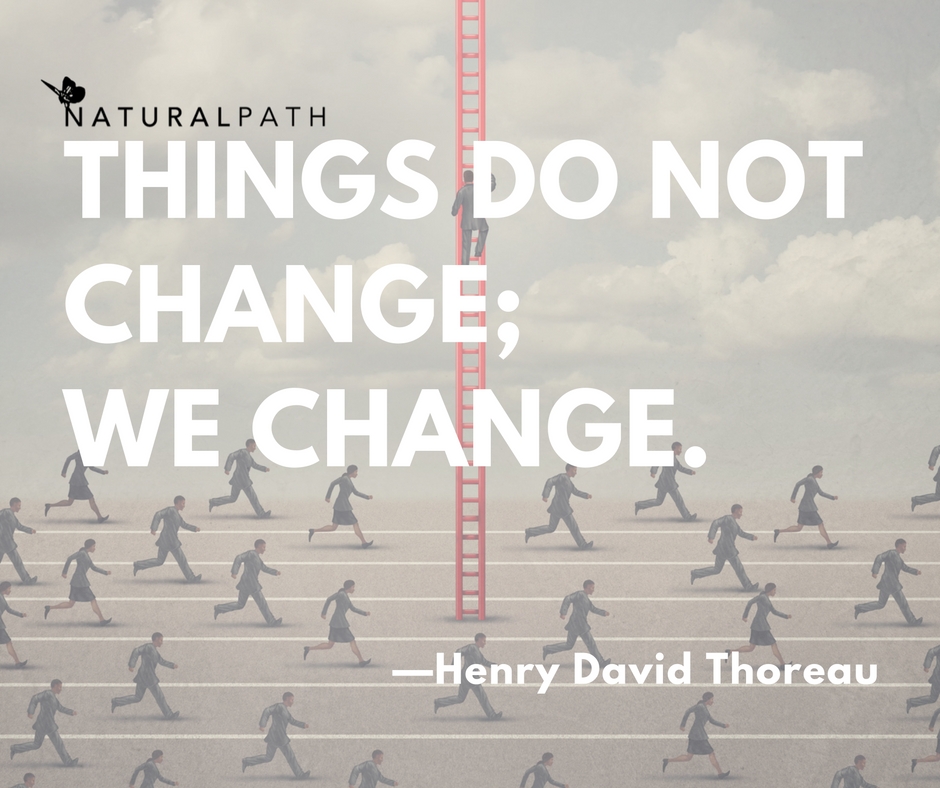Author of The Blood Code: Unlock the secrets of your metabolism [2014]
Things do not change; we change.
—Henry David Thoreau
When we describe stress in our life, we invariably talk about things occurring around us. But how we perceive and respond to life events is what creates a greater or lesser stress response in our body. Most modern-day stresses are not physically demanding, short-term, fight-or-flight type events. Consecutive work deadlines, unavoidable daily tedium, chronic illness, family tensions—we encounter events that do not end tomorrow. Studies show that this chronic stress puts us on the fast track toward weight gain and metabolic syndrome IF combined with high dietary carbohydrate intake.[i] Your diet should supply only the carbohydrate amount that your body thrives upon (See The Blood Code: Unlock the secrets of your metabolism – 2014), but you need to address more than that—you must have a plan to help control the adverse effects of chronic stress.
 Unresolved stress can precipitate insulin resistance and all the heart disease risks that go with it.[ii] Stress management must not be seen as a “sidebar” to diet and exercise—It needs to be center stage.
Unresolved stress can precipitate insulin resistance and all the heart disease risks that go with it.[ii] Stress management must not be seen as a “sidebar” to diet and exercise—It needs to be center stage.
The good news? It’s really easy. For stress reduction techniques, like exercise research has indicated too, a little bit goes a long way. Studies have shown a dramatic reduction in stress hormones by taking a few relaxed, deep breaths. I’m not talking about a one-hour meditation class here; the evidence supports taking a few deep breaths every hour; yeah, just a few!
Here are three research-proven ways to reduce the harmful effects of chronic stress:
1) Deep breathing, even just a few breaths, results in significant hormonal improvement. Stress hormones in your body release instantaneously, but they clear quickly as well, given the right stimulus, such as a deep, relaxed breath.
2) Physical contact with others, the opposite of social isolation, leads to instantaneous hormonal improvement.
3) Short naps, 20 minutes or less, can result in dramatic physical and mental benefits. Many people think a nap will slow them down, but if you keep it to 20 minutes or less, it will actually improve your metabolism.
 Dr. Richard Maurer is a licensed naturopathic physician, after practicing in a primary care setting for twenty years, now offers a unique perspective on health and metabolic recovery. Dr. Maurer puts you in the driver’s seat of your health and wellness, helping to decipher the results of blood tests to determine the habits of diet and fitness reverse and prevent metabolic diseases, such as pre and type 2 diabetes , weight gain and hypothyroidism problems. His recent book, The Code Blood: Discover the secrets of their metabolism [2014] it provides the tools to understand and act on the analysis of key blood and folds measurements skin to define your personalized diet, fitness and nutritional needs to regain health and vitality of disease reversal it is only the beginning.
Dr. Richard Maurer is a licensed naturopathic physician, after practicing in a primary care setting for twenty years, now offers a unique perspective on health and metabolic recovery. Dr. Maurer puts you in the driver’s seat of your health and wellness, helping to decipher the results of blood tests to determine the habits of diet and fitness reverse and prevent metabolic diseases, such as pre and type 2 diabetes , weight gain and hypothyroidism problems. His recent book, The Code Blood: Discover the secrets of their metabolism [2014] it provides the tools to understand and act on the analysis of key blood and folds measurements skin to define your personalized diet, fitness and nutritional needs to regain health and vitality of disease reversal it is only the beginning.
Your personal and familial tendency to type 2 diabetes what motivates people to regain their metabolism “sweet spot” through diet, health habits and nutritional self-guided tested.
Dr. Maurer is the past president of the Association of Maine naturopathic doctors and performs regularly at medical conferences such as Weston Price Foundation, American Association of Naturopathic Physicians and popular PaleoF ( x) and health. He lives in Maine with his wife Alexandra where they raised three children.
Referrences
[i]Kuo,L., et al. Chronicstress,combined with ahigh-fat/high-sugardiet,shiftssympatheticsignaling towardneuropeptide Y andleads toobesity and themetabolicsyndrome, Ann N Y Acad Sci. 2008 Dec; 1148:232–37.
[ii]Raikkonen,K., Matthews,K. A., Kuller,L. H. The relationship between psychological risk attributes and the metabolic syndrome in healthy women: Antecedent or consequence? Metabolism. 2002; 51:1573–77.

















